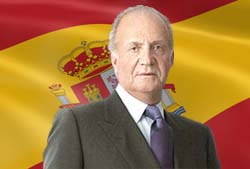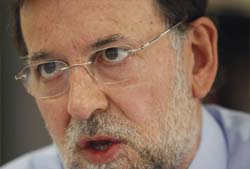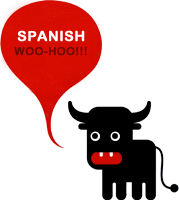Government & Monarchy in Spain
Monarchy
In terms of democracy, the basic organisation of the Spanish state is very similar to that of the UK. King Juan Carlos is the Head of State, having been designated as King of Spain in 1969 by Franco, seconded by the other members of the royal family. His wife, and the Queen of Spain, Sofía are generally seen as respected, important members of the Spanish state by the country’s citizens and they are considered amongst the most respected public figures in Spain which is largely owing to the faith and trust that the nation holds in its king.

Apart from playing a significant role in official ceremonies and overseeing certain political decisions, the head of state nowadays has very little input in the organisation of the country although the king’s role during the transition to democracy following the death of Franco was highly significant, especially in terms of the continued popularity and respect that Spanish citizens hold for the royal family. The main reason for this is that Spain is a Constitutional monarchy, meaning that most political and governmental workings derive from the Spanish constitution of 1978. The heir to the throne is Prince Felipe, Prince of Asturias, who is the King’s only son, and his wife the Princess of Asturias.
In addition, the King has two daughters who are both married and a total of 8 grandchildren; 4 girls and 4 boys.
Government
Mariano Rajoy Brey was elected President of the Government of Spain (or Prime Minister) in December of 2011 and is responsible for most major political, administrative and financial decisions in the country. He, along with the governmental cabinet, has control over military administration, foreign and domestic policy and national defence on behalf of the King. Rajoy is the leader of the conservative PP (People’s Party) of Spain which was also in power between 1996 and 2004 under the leadership of José María Aznar López.
Since the transition to democracy began immediately following Franco’s death in 1975, governmental power in Spain has been passed between the countries two main parties; PSOE (Spanish Socialist Workers’ Party) and PP (People’s Party). Due to the repression which took place under Franco’s rule, the Spanish community is a lot more involved in the election process of their state and voter turnout is relatively high.
Autonomous Communities
‘The State of Autonomies’ is the policy under which lie the regional governments. Due to Spain being split officially into 17 separate communities, each region has its own local government that is able to exercise certain levels of power across the area. This method allows a decentralised approach to the centralised state of Spain meaning that autonomous communities could make their own decisions yet still form an integral part of the Spanish nation as a whole.
To find out more about the autonomous communities of Spain, click here.
Current economic climate in Spain

Since coming to power under serious economic stress, Rajoy has implemented a number of spending cuts totalling approximately €80 billion and VAT has also been set to rise from 18-21%. These cuts involve the scrapping of some benefits for both jobseekers and new home buyers which, along with the high rate of unemployment and low consumerism at present in the country, make the future look bleak for Spaniards feeling the blow from the current economic climate. Cuts such as these are set to hopefully aid the country in recovering from its current banking debt which stands at over €100 billion, of which the property market slump is said to be the cause, and the EU has recently agreed a bailout, but how much longer can Spain stay afloat?
Mining is amongst the latest employment sector to be hit by serious cuts and over 60% of spending has been subsidised. Not only does this mean a loss of hundreds of jobs for the miners themselves, but it also means that families will be put under great economic pressure to be able to continue to live comfortably. As a result of these particular cuts, a march of miners from across the country, many of whom had been walking for days, met in Madrid to stage a protest against these new measures.









